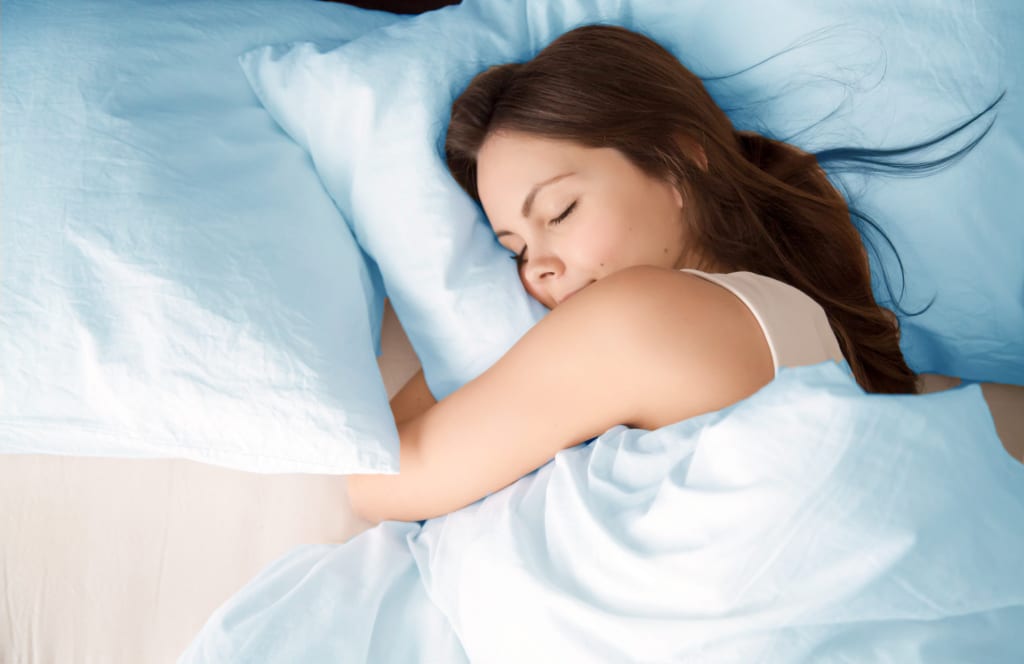10 Tips for Better Sleep: How to Finally Get the Rest You Deserve
In this article we will discuss about 10 Tips for Better Sleep: How to Finally Get the Rest You Deserve

Our psychological and physical well-being depends on sleep, but many individuals struggle to get the rest they require. In contrast, recent research indicated that only 6.8 hours of rest each night is enough for roughly one-third of individuals in the United States. Sleep deprivation can result in obesity, depression, and an increased risk of accidents and injury.
The remarkable thing is that you can apply easy ways to increase both the quantity and the quality of your sleep. Do you know magnesium glycinate? It's the best magnesium for sleep that can help you to get the sleep you want. You may finally get the sleep you need by using these techniques, and you'll feel revived and rejuvenated when you wake up. So let's get going and discover how to improve sleep! We will look at suggestions for improved sleep in this post, supported by data and professional guidance.
10 Tips for Better Sleep
Sleeping well is among the most crucial things you can do to improve your health or reduce weight.
1. Follow a Sleep Routine
Limit your sleep time to eight hours. Most individuals can fall asleep for little over eight hours and yet feel refreshed. For a healthy person, a minimum of seven hours each night of sleep is advised. Even on weekends, go over to sleep and rise within the usual hour daily. Thus, consistency will help you to strengthen your sleep cycle. After settling down for around 20 minutes, if you continue to can't sleep, get out of the mattress and relax. Read a book or play some calming music. Once you're exhausted, get back to sleep. Continue as necessary, but keep your bedtime and wake-up hour the same.
2. Take Care of Your Diet and Hydration
Never overeat or go to sleep starving. Refrain from eating a big, substantial dinner right before bed. You could have trouble falling asleep due to discomfort. One should use alcohol, caffeine, and nicotine with care. Nicotine and caffeine have energizing effects that take several hours to subside and, therefore, can disrupt sleep. Alcohol can also interfere with sleep later in the night, even though it might initially make you drowsy.
3. Establish a Calm Atmosphere
Make your space cold, silent, and dark. To establish a setting appropriate for your requirements, consider using earphones, a fan, room-darkening curtains, or other gadgets. Avoid using light-emitting devices for too long when it's close to sleep. It could be harder to drift off to sleep if there is more exposure to lights in the evenings. Good sleep may result from relaxing activities preceding bed, such as bathing or practicing relaxation exercises.
4. Restricting Daytime Naps
Extended naps throughout the day might keep you up at night. Stop taking naps in the afternoon and keep naps for not longer than an hour. To make up for the loss of sleep, though, you may need to take an afternoon nap before going to work if you work late.
5. Don't Forget to Get Some Exercise Every Day
Daily exercise might improve your ability to sleep. Avoid exercising too soon before going to bed, however. It may also be beneficial to spend some time outdoors each day.
6. Reduce Anxiety
When going to bed, allow your anxieties or problems to rest. Write down what you're thinking, then put them aside until tomorrow. Stress reduction may be beneficial. Start with the fundamentals, including organizing yourself, establishing priorities, and assigning duties to others. Moreover, meditation relieves stress.
7. Use a Melatonin
An important Supplement for Sleep sleep hormone named melatonin signals to your nervous system whenever it's time to unwind and go to bed. Supplemental melatonin is a very well-liked sleep supplement. Melatonin is frequently prescribed for sleeplessness and may represent one of the most straightforward solutions to sleep more quickly. One research found that consuming 2 mg of melatonin before bed increased people's capacity to fall asleep more quickly and gave them a better night's sleep. In a different trial, the group's 50% reported a 15% rise in the quality of their sleep along with a quicker onset of sleep. To determine your sensitivity, take a small dose and gradually raise it as necessary. You should see a healthcare professional before using melatonin because it could change neurochemistry.
8. Think About These Additional Dietary Supplements
Many substances, such as the following, can promote relaxation and improve sleep:
Ginkgo Biloba: An organic plant with various advantages, there is some indication that it could promote good sleep, relaxation, and reduced stress. 250 mg 30–60 minutes before going to bed.
Glycine: According to several studies, consuming 3 grams of the amino acid glycine may enhance the sleep you get.
Valerian Root: Many studies indicate that valerian root may aid in promoting a better duration of sleep and assisting with slumber. 500 mg taken preceding bed.
Magnesium: This mineral, involved in over 600 bodily processes, can help you unwind and sleep better.
L-theanine: L-theanine is an essential nutrient that helps with relaxing and slumber. 100–200 mg before going to bed.
Lavender: A potent herb with numerous health advantages, lavender can have a sedative and soothing effect, which can help you sleep better. Consume 80–160 mg of linalool that is 25–46%. You should take a single supplement at a time. Although these supplements are not a cure-all for sleep problems, they could be helpful with other organic sleeping techniques.
9. Check Out if There's a Sleep Disorder
An underlying medical ailment can cause your slumber issues.
Sleep apnea, which results in irregular and disrupted breath, is a prevalent problem. Individuals who have this illness frequently stop respiration while they are asleep. You might be surprised to learn how prevalent this illness is. According to one study, 9% of women and 24% of men had sleep apnea. The circadian rhythm sleep/wake disturbances that are widespread in shift jobs and sleep mobility disturbances are some other prominent clinically diagnosed conditions. Speaking with your medical physician when you've always had trouble sleeping can be a good idea.
10. Avoid Drinking Anything Before Sleeping
The medical name for nighttime peeing that is profuse is nocturia. This condition impacts both the amount and the quality of sleep. Comparable feelings can result from consuming many drinks before bedtime. However, some individuals are more susceptible than others. Even while being hydrated is essential to your well-being, you should limit your water intake at night.
Try to avoid drinking anything for a couple of hours before sleep.
Moreover, it would help if you use the toilet before bed because it can reduce the likelihood that you will wake up throughout the night.
Lastly,
Although sleep is essential to our general health and well-being, many people find obtaining the rest they require challenging. But, by using the advice provided in this article, you may increase the quality and amount of your sleep, which will have several positive effects on your psychological and physical well-being. You'll be on your path to finally receiving the sound sleep you need if you prioritize it and make the necessary adjustments to your sleep schedule.





Comments
There are no comments for this story
Be the first to respond and start the conversation.